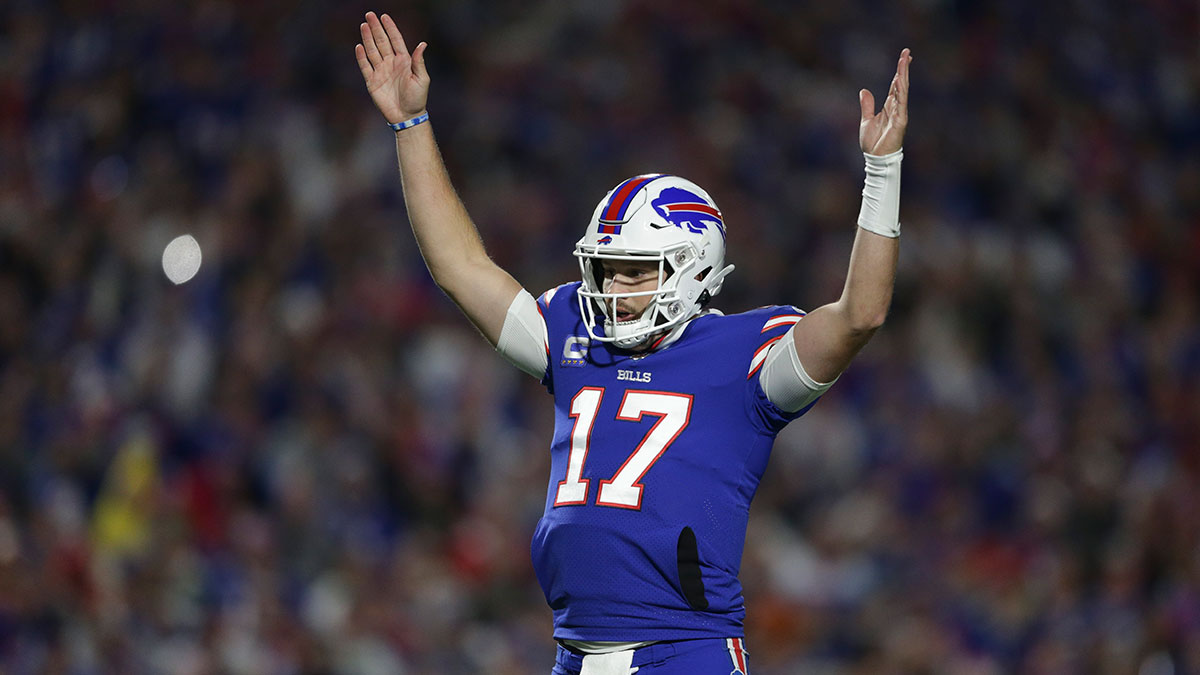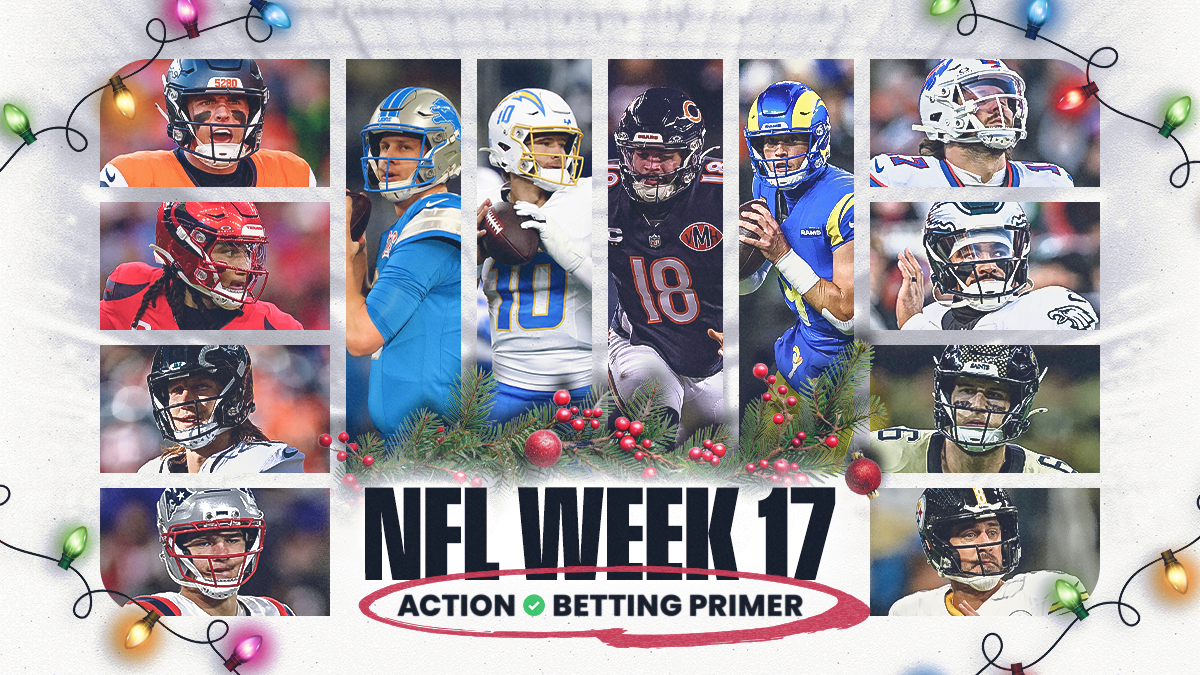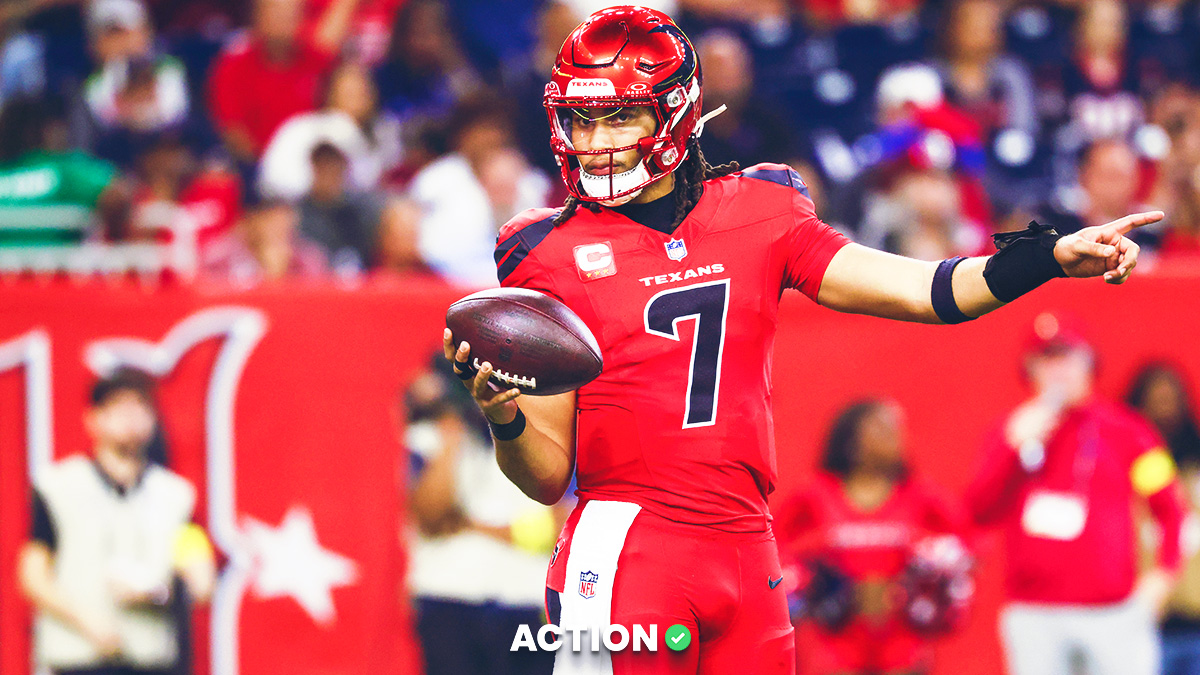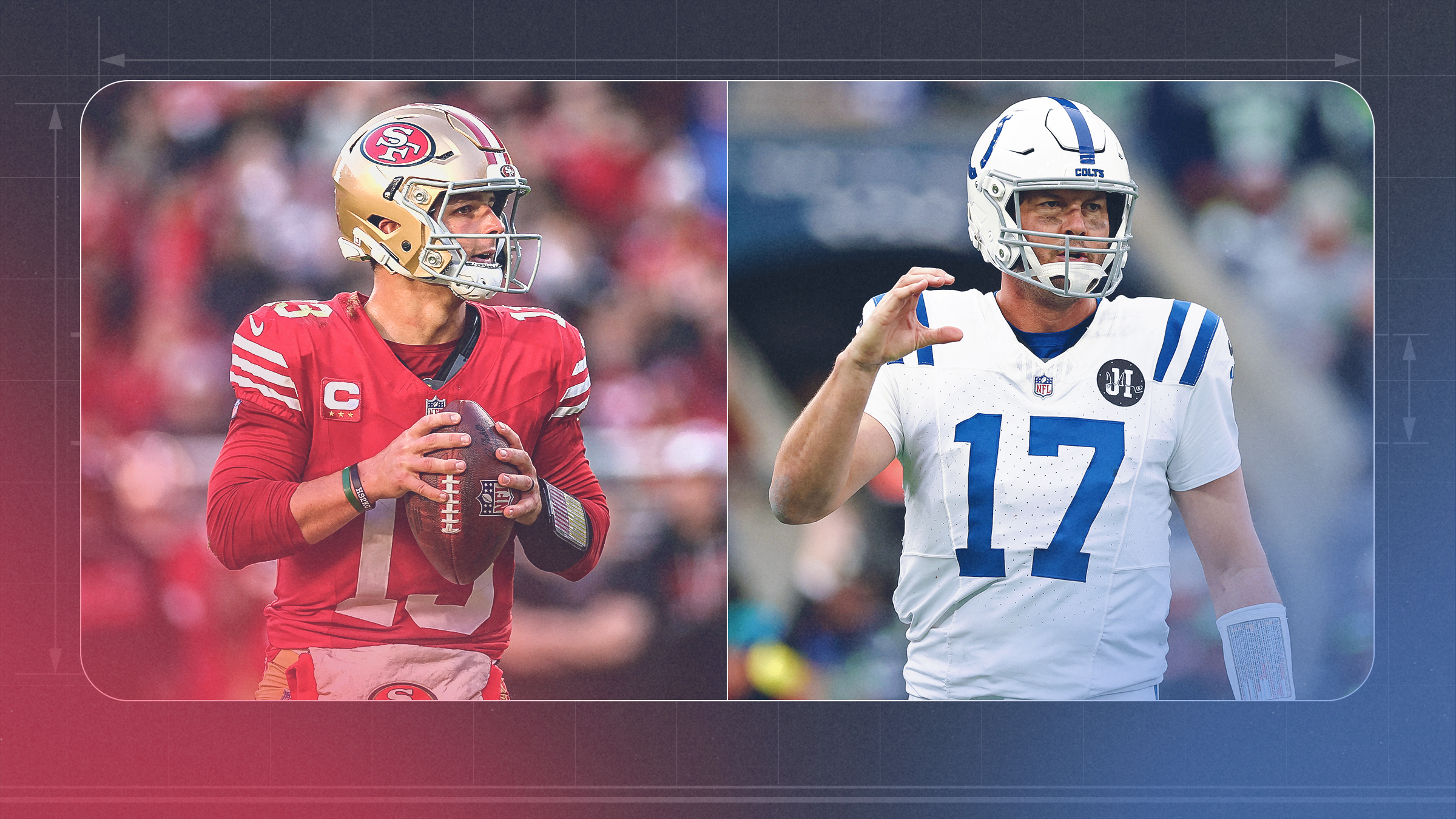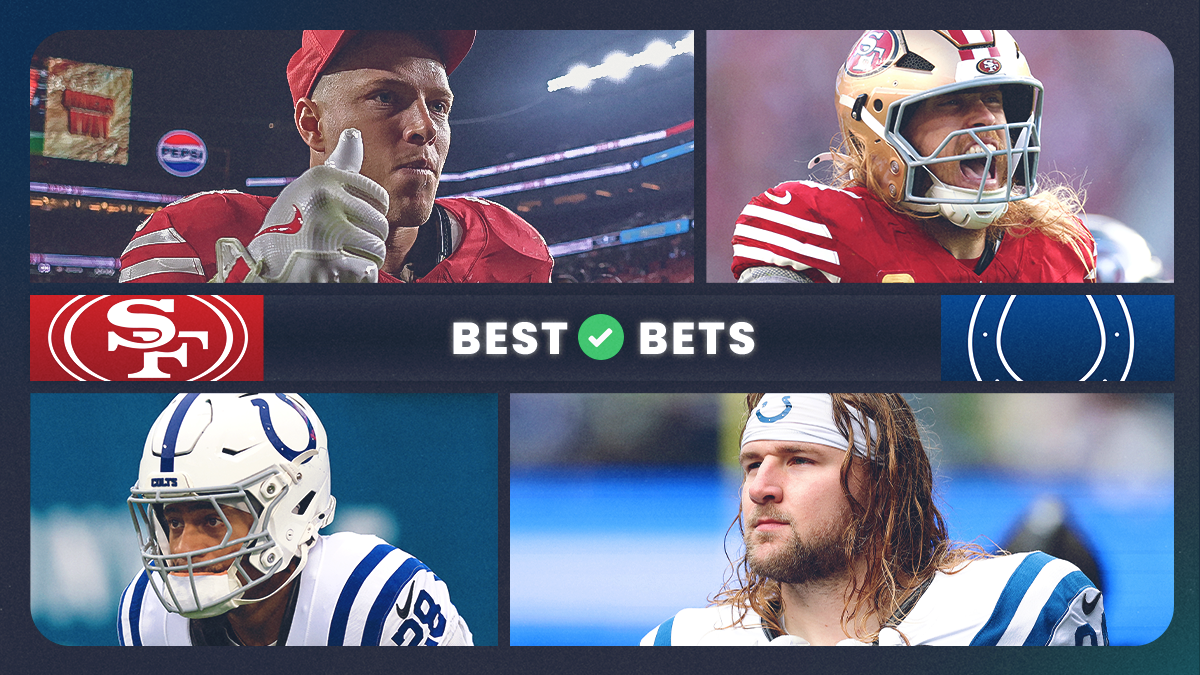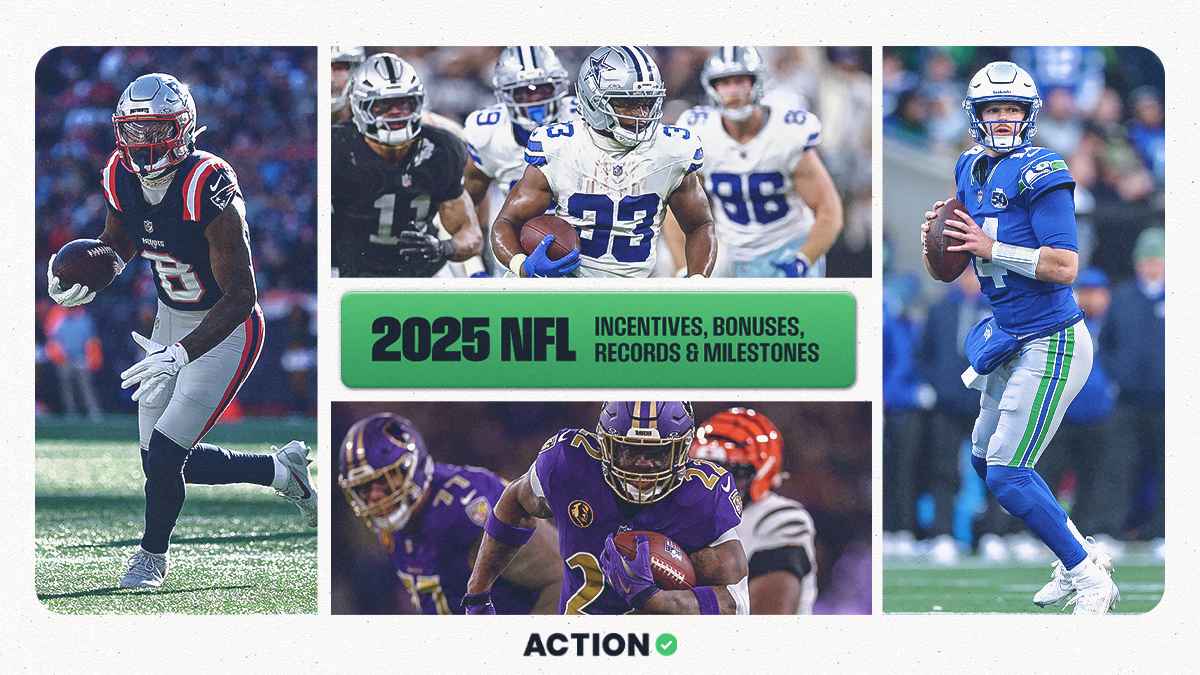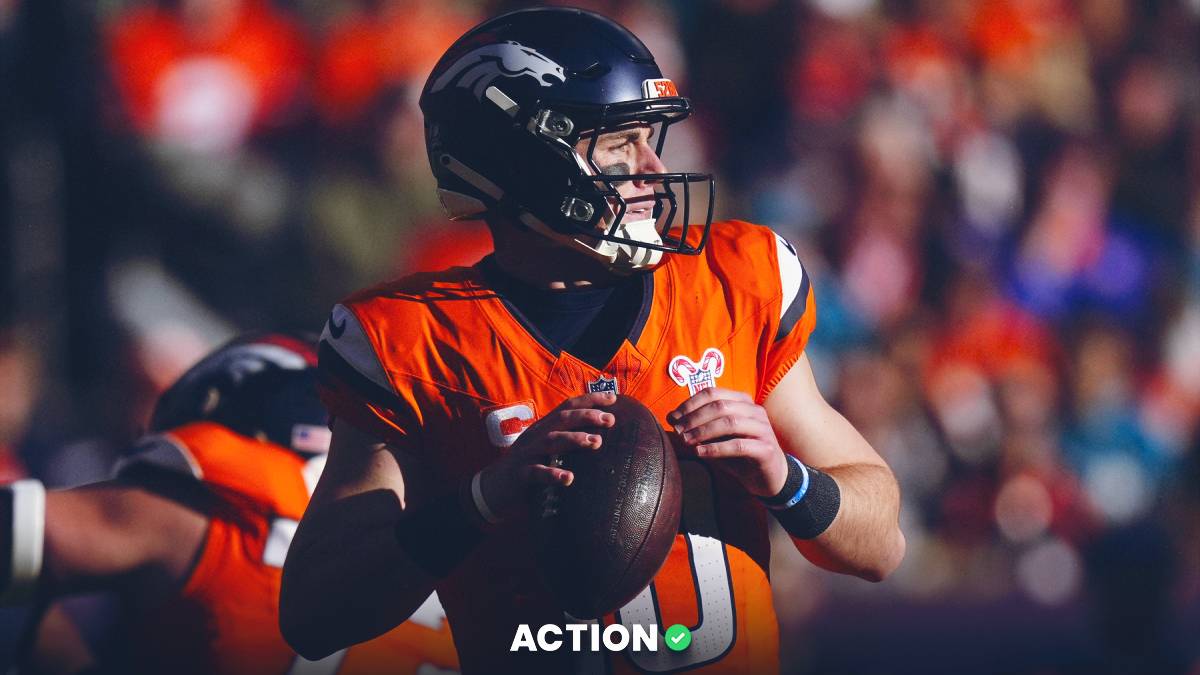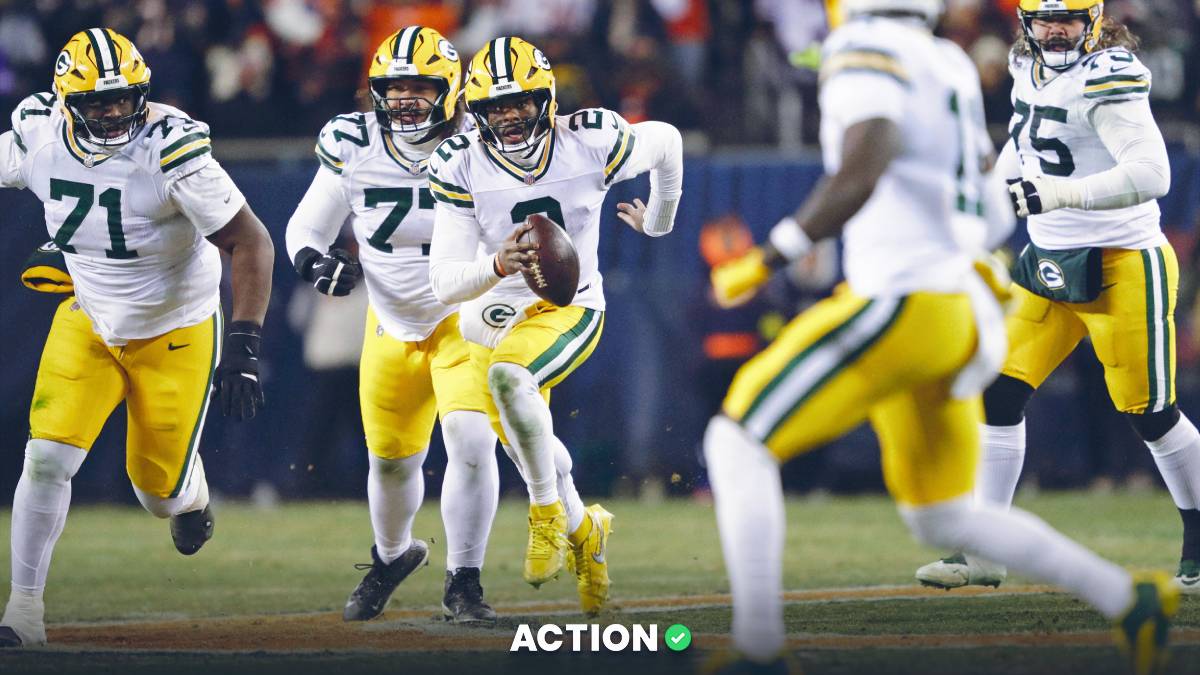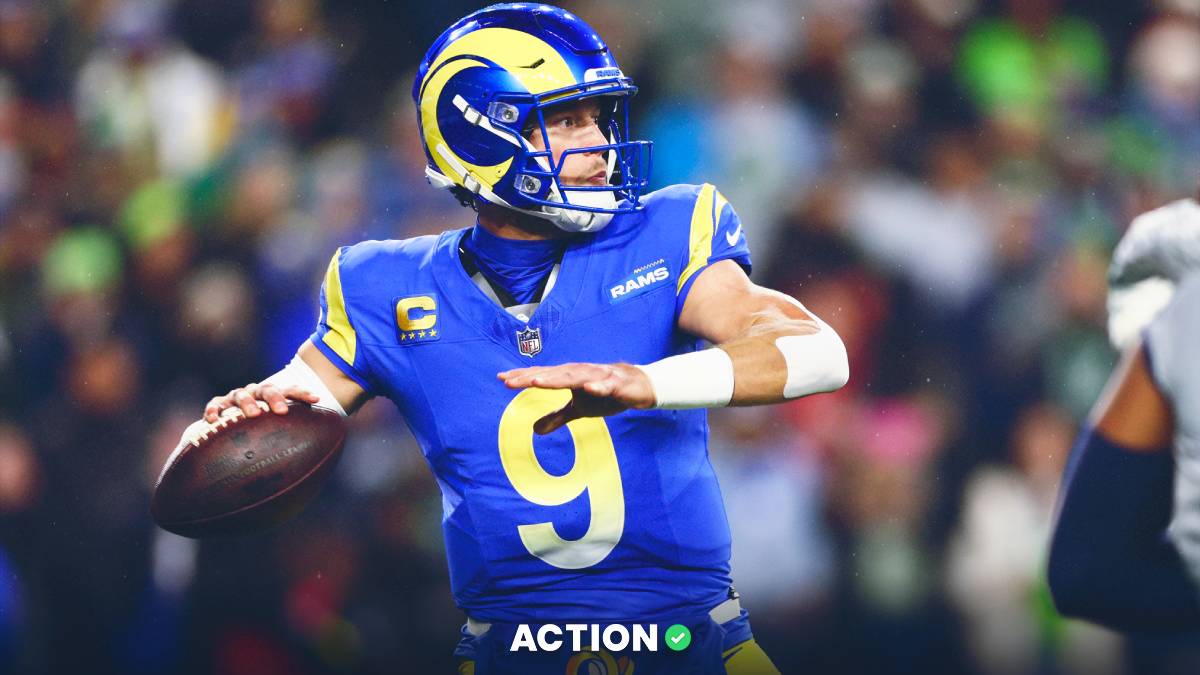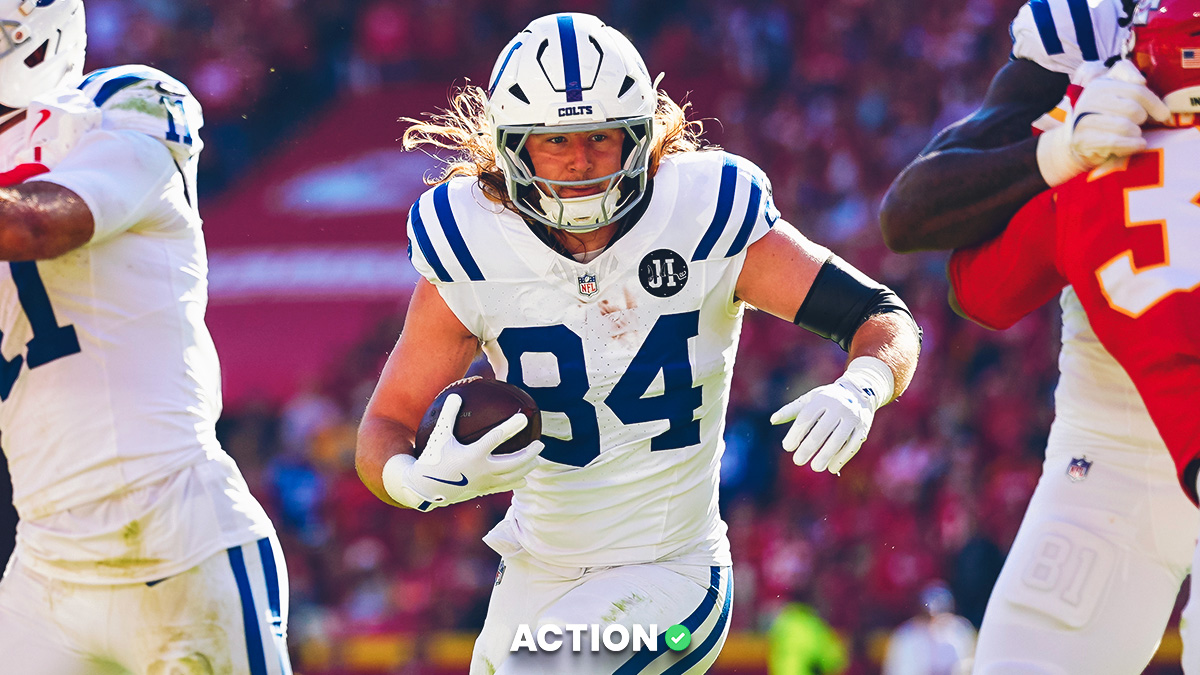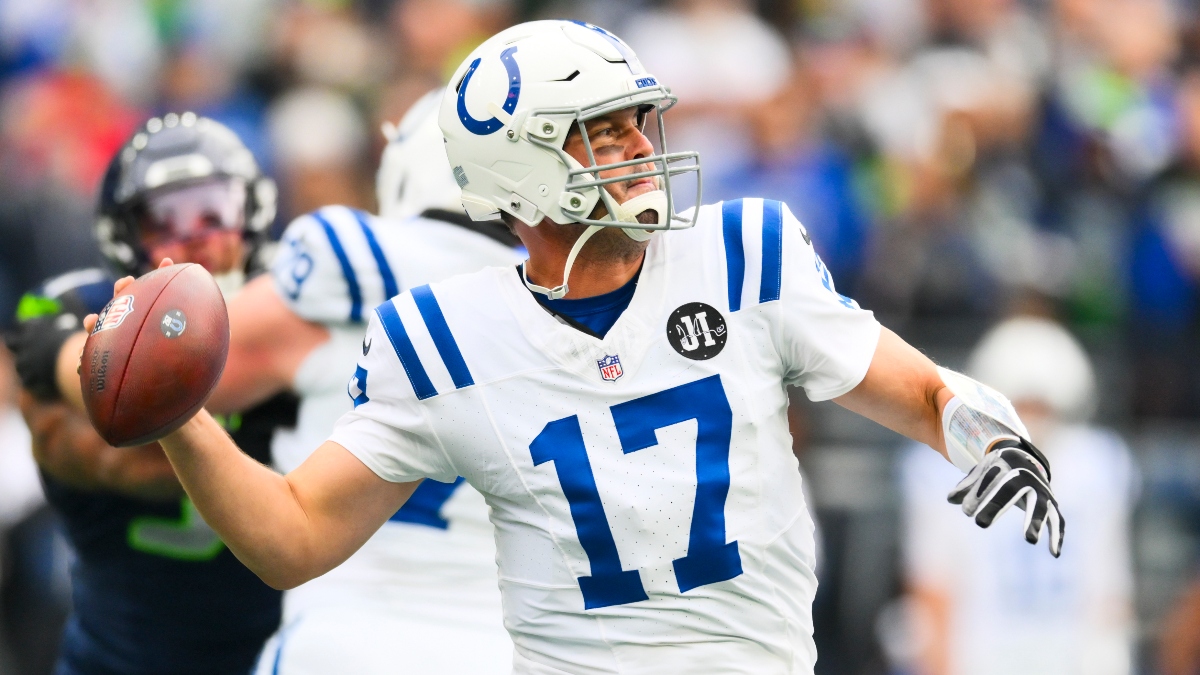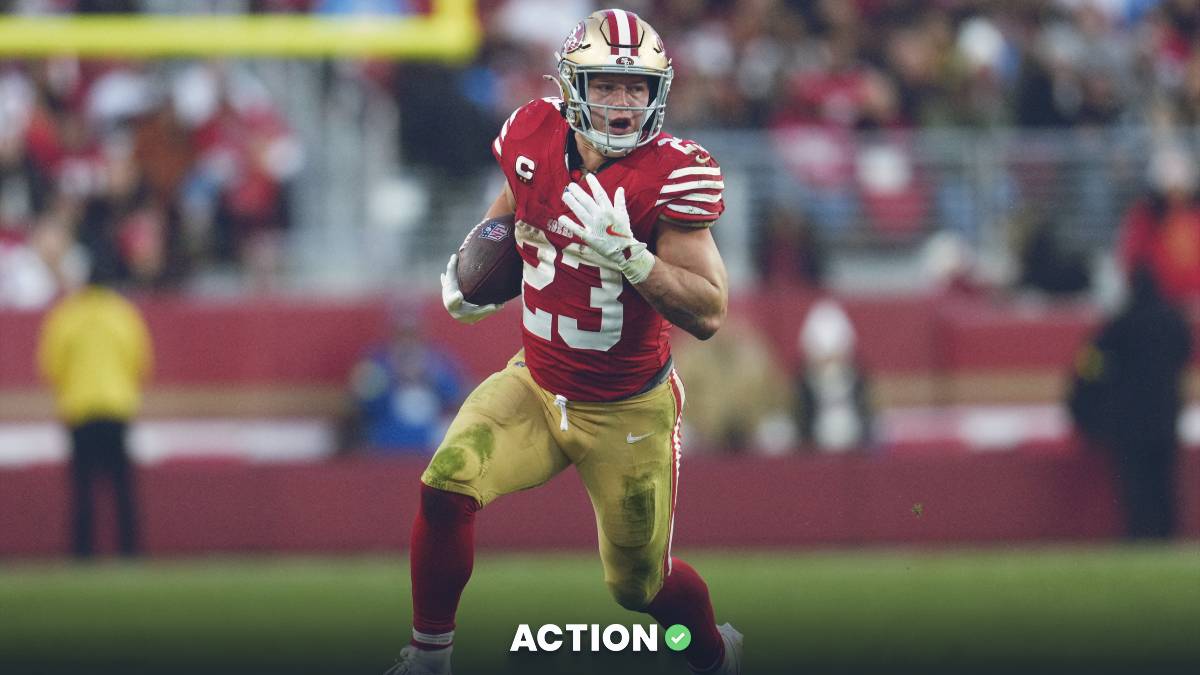The NFL made a major change in the awards voting process and it should drastically change how bettors view awards markets.
The Associated Press announced Friday that voters will now cast a full ballot for each award, rather than just voting for one player:
A significant change in the way the NFL's MVP is voted upon: voters will now cast a ballot and rank their Top 5 picks for MVP. Previously it was just one player per voter, 50 votes in total.
More info on the updated process via @AP_NFL: https://t.co/zYUMpLa2Dr
— Field Yates (@FieldYates) November 18, 2022
There are still only 50 voters, but each award now has a full ballot. For MVP, voters will rank their top five. For other awards, like Rookie of the Year and Offensive/Defensive Player of the Year, voters will rank their top three. Votes will be weighted accordingly, which is different from the past, when there were simply 50 votes total for each award, one per voter.
From a fan standpoint, this change is a slam dunk and one that's long overdue.
This puts the NFL more in line with the NBA, MLB and NHL. It recognizes deserving runner ups and guys who made a few ballots, while also driving endless "Is he in the conversation?" discussions throughout the year. Most importantly, it's a better system to reward the most deserving winner. In the end, that's what fans want.
But for bettors who have been placing bets on these markets all year, this throws a serious wrench into things.
But won't the award just go to whoever gets the most first-place votes?
Sure, if the race is clear. If one candidate grabs 40 or 45 of the 50 first-place votes, it won't matter where that candidate lands on other ballots. However, when the races aren't as clear, things can get wonky.
Ranked Ballots Are Wildly Different Than All-In-One Voting
Award races are no longer binary. Voters won't just vote for one candidate, and thus implicitly against every other candidate. Now, there's a whole array of ways to express oneself on a ballot.
Think back to recent U.S. presidential elections. When Americans vote for president, they get one vote to cast for one candidate. With only two realistic winners, it's either for or against. It's binary.
Now, imagine the voting process changing to this MVP style, where Americans instead rank their top five at the ballot box.
As polarizing as elections have become, do you believe for one second the outcome would remain unchanged? Even with only two realistic candidates, many voters would not have ranked the likely runner-up second on their own ballot. Some would push them down their ballot, others off entirely.
Just as importantly, supporters of one candidate might have supported them with just a second- or third-place vote, choosing to support someone else entirely at the top of the ballot. Suddenly a vote "for" one candidate is only worth five for third place, instead of a full 10-point first-place vote. It suddenly takes two third-place ballots to equal one first-place vote.
Those down votes matter, and every one of them changes the final tally. There's obviously fewer voters and much less at stake here, but it's easy to see how down-ballot voting matters.
We can only speculate how this will change the landscape, but as bettors, we have to take our best guess at this process.
Potential Fallout
1. Wide-open votes get even more wide open, and down-ballot voting will determine races.
Imagine a race where everyone votes for one of four candidates. The vote ends up with 16, 13, 11 and 10 votes for four players. Under the old system, the player with 16 votes wins, despite receiving just 32% of the vote. With the new system, those second- and third-place votes would drastically impact, and possibly change, the outcome.
Last season, Joe Burrow edged out Dak Prescott for Comeback Player of the Year with 28 votes to Prescott's 21. However, Prescott likely would have been on every ballot as the quarterback of America's team coming back from a horrific injury. Meanwhile, Burrow may have been left off some ballots altogether. That CPOY vote gets closer or has a different winner under the new system.
Ryan Tannehill won CPOY in 2019 by one vote over Jimmy Garoppolo. A full 38% of the votes went for neither of the two.
Shaun Alexander won MVP in 2005 with 19 votes. Peyton Manning and Tom Brady followed with 13 and 10 votes. Expand the ballots, and you surely get some voters who go Manning-Brady at the top. Alexander probably loses on the down ballot.
When races are wide open, they'll be really open now, with underdogs very live. On the other hand …
2. Big favorites become even more favorite-y, and long shots get even longer.
With only 50 votes, it's easier to find a scenario where a candidate ekes out 16 votes to steal a win. A long shot just needs one strong voter base — voters with a bias for quarterback MVPs, for example, or maybe for a winning team or against defenders or modern passing attacks — to push a candidate through.
With down ballots, heavy favorites get even stronger.
Micah Parsons is the strongest award favorite on the board. He's a heavy favorite to win DPOY and has been all season.
But if the season ended today, not everyone would vote for Parsons. Some would make the case for Nick Bosa (the second favorite). Someone would vote for Aaron Donald as the best defender in football. Someone might talk themselves into T.J. Watt with his wild dominance in two games and the narrative of how bad Pittsburgh was without him.
However, even the few ballots that didn't have Parsons at the top would almost certainly vote him second out of sheer common sense.
Imagine a contingency of voters for Patrick Surtain, PFF's top-graded corner on the league's leading PPG defense in Denver. Could a handful of people vote Surtain to win DPOY? Certainly. But 40 ballots won't even have Surtain on them, while Parsons is picking up points on all of those other ballots.
Parsons, heavily favored, would win in a landslide.
3. This could get wonky for a few years until things stabilize.
This is a good change in the long run, but here's guessing we'll see a few odd results before things normalize. The next move is that the NFL needs at least 100 voters, not 50 — things could get a bit weird in the meantime.
In an ever-political world, some voters will simply choose not to vote for certain candidates. One can imagine Nick Bosa being left off a few ballots entirely for his beliefs, for example, or you wonder how many voters might have left Aaron Rodgers off their MVP ballots after last year's shenanigans.
Tyreek Hill's past could cause him to be left off some ballots. With a one-vote system, that's not as noticeable — maybe someone just thinks Justin Jefferson is better. But if both guys break the receiving record and one gets a first-place vote and the other gets left out entirely? That's a bit more conspicuous.
Some voters will make choices that reflect their football values. You better believe some MVP ballots will be all quarterbacks, always, no matter what. Some voters will decide winning matters and leave Dameon Pierce off their OROY ballot. Others will choose to reward sheer excellence and stick Aaron Donald on their DPOY ballot even in a down year on a bad team.
We don't know yet how this will all play out — but rest assured this change truly matters.
So how could it impact each race this year? A few quick speculative thoughts …
How Will Voting Changes Impact Each Race in 2022?
Offensive Rookie of the Year
Voter history traditionally hasn't made winning much of a priority on the whole, but it could be impactful here.
The current race is tight between Kenneth Walker and Dameon Pierce, but the former is playing for a team that looks playoff bound while the latter is on a team that may finish bottom of the league. In a close race, that might be the difference, especially if a few voters decide to recognize a winning player like Garrett Wilson or a heroic story like Brian Robinson.
Defensive Rookie of the Year
Sauce Gardner has been the clear favorite for a month, but this change might make him a value play now.
Gardner ranks in the top three in PFF cornerback grades. He's already elite and plays in a major media market in New York, a likely home for many voters. The Jets are winning, Gardner is great, he was a top draft pick — he's the sort of guy who will be on every down ballot, even if not at the top.
Tariq Woolen is second in odds, but he was a lower draft pick and is lesser known and playing for a West Coast team. Woolen might have stolen this award 24 to 20 if Seattle closed strong and made the playoffs while the Jets faded and a few voters went with Aidan Hutchinson or elsewhere. That looks much less likely now because Gardner will still get all those second- and third-place votes, and some voters won't even know who Woolen is.
If you don't have a Sauce ticket yet, it might be time to play -165 at BetMGM.
Offensive Player of the Year
This one gets very interesting and, I think, much more open.
OPOY is effectively just an award for gaudy stats, but some voters seem to consider it something of a MVP consolation prize. Others just vote for the same guy for both.
Right now, Justin Jefferson and Tyreek Hill are well ahead of the field in OPOY odds. I think this significantly hurts Hill's chances. Some voters will ignore him on their ballots because of his past. Others could choose to recognize Miami's brilliance by voting for Tua Tagovailoa or even Jaylen Waddle. No one is voting for Kirk Cousins over Justin Jefferson.
I suspect this also opens this award up for a quarterback winner. Patrick Mahomes has a good chance to lead the league in passing yards and TDs. If he continues to have a huge year on a good team, he could end up on nearly every ballot while the star WRs split votes, with some ballots choosing one and leaving the other off altogether. Mahomes could steal this award and be a great value at +1300 at BetRivers.
Lamar Jackson could also be intriguing at +1600 at DraftKings with a big close, and this could be a Jalen Hurts consolation award if he doesn't win MVP. Quarterbacks will always get more down-ballot votes now. These guys have value.
Defensive Player of the Year
We effectively covered this one earlier. Barring a major injury, Micah Parsons should win this one going away as an elite player at a marquee position playing for a winning team that's forever in the spotlight.
Parsons will be on every ballot, tops on most. This voting change pushes him over the edge and makes him a play even at -250.
Coach of the Year
This one is really interesting and might have been blown wide open in a year where there were already a bunch of intriguing candidates.
Before Friday, it was tough to imagine Brian Daboll winning over Nick Sirianni if he doesn't even beat him in the division. Daboll has a better chance today in a massive market with a big spotlight; he will be on a lot of ballots if the Giants keep winning.
First-year head coach Kevin O'Connell could have a better case if Minnesota finishes 14-3 or 15-2 with mostly the same roster as last year's non-playoff team — you have to figure almost every voter puts him on the ballot. A slew of seconds and a handful of firsts might beat Sirianni, even though O'Connell lost head-to-head and may finish behind him in the standings.
Robert Saleh could grab attention in a major market. Some could opt for what Mike Vrabel is doing with his roster. Some will probably put Bill Belichick on their ballot every year, and deservedly so. Pete Carroll could get West Coast down-ballot support. Mike McDaniel will be popular among young voters that prefer innovation. Heck, someone could throw a vote on Jeff Saturday if this Colts thing continues.
This award looks like it's been blown wide open, with a plurality very possible now. If you have a sleeper you like, this is your chance to strike.
Comeback Player of the Year
The odds make this a two-player race between Geno Smith and Saquon Barkley, with Smith a slight favorite at every book.
The voting process change flips that.
Barkley plays on a winning team in New York. Smith plays on the West Coast for a team most people aren't even watching. Barkley would be on every ballot if things ended today. Smith? Not necessarily.
I still don't love betting on an injury-prone QB with nearly half a season to go, but I think Barkley clearly pulled ahead with this change.
Most Valuable Player
This is the big one, and the one I suspect is most impacted.
Tua Tagovailoa tickets might be dead.
He was always a long shot, a niche case for a quarterback that is technically undefeated when he takes half the snaps, putting up incredible passing stats in a whirring speed system. But who gets credit for that system?
Some voters might list Hill or even Waddle on their MVP ballot, potentially ahead of Tagovailoa. Some could rank multiple Dolphins in any order, splitting the votes. Other voters could be content to put Mike McDaniel atop their COY ballot and leave Tagovailoa off the MVP ballot. Others will prefer stats and find that Tagovailoa doesn't measure up, simply because he lost three games of stats while injured.
Under the old voting system, Tagovailoa had a real chance to win over just enough voters and split the vote for a win in a crowded field. Under the new system, he's a serious long shot and a complete no bet as the second favorite on the board.
Before the news broke about the voting change, I was mid-MVP column. Tagovailoa was already by far the worst value on the board. I put him around 7% to win, an implied +1325 versus the +500 you'd have to pay. Now those odds got even worse.
If you have that +8000 Tagovailoa ticket we grabbed a couple weeks ago, you can't hate the value — but it might be time to cash out if you have the option.
I never really bought Kirk Cousins as a viable candidate, but his odds are effectively zero now. Even if the Vikings continue to win nearly every game, Jefferson would steal some of his votes, and O'Connell would be another option for voters.
Cousins doesn't have the stats or the reputation. He'd be buried on the ballot or left off altogether for far too many voters to have a real chance. He's a dead bet at +3000.
The new voting rules will put an even bigger emphasis on stats and one-man offenses for an award like this. Voters may be split on who to credit in Miami or Minnesota; they'll have no such problem in Kansas City or Philadelphia.
If we concluded the season now, Patrick Mahomes would be on every single ballot. The Chiefs are the AFC 1-seed, and Mahomes leads the league in passing yards and TDs. There's no longer an unbeaten team in the NFC, nor a juggernaut Bills team ahead in the AFC. Mahomes would get plenty of first-place votes, and you figure he'd be second on most other ballots.
A week ago, Jalen Hurts would have been on every ballot. He's also seen as a one-man offense for Philadelphia, and no voter would have left off the QB of an undefeated team. One loss later? Hard to say, but unless the Eagles fall apart, you have to figure Hurts is on nearly every ballot as the seminal offense for a 14- or 15-win team.
There's one other guy who likely ends up on every ballot now that he seems healthy enough to play through, and that's Josh Allen.
Allen is a statistical monster and the picture of a modern sports MVP. He does absolutely everything for his team, putting up gaudy numbers both in the air and on the ground. He leads his team to victory most weeks, even though he's lost two in a row. By sheer definition of value or greatness, Allen is top five no matter how you slice it, and five is too many.
On a one-vote ballot, Allen was rapidly losing steam. He leads the league in interceptions and still makes some big mistakes, and his record is no longer pristine at 6-3. Hurts and Mahomes have better records. Tagovailoa beat him head-to-head. Allen might not get a single vote under the old system.
That's ludicrous considering Allen has probably been the most valuable player in the NFL. If you think of the NFL through an NBA voting mindset, Allen is probably the MVP a la Nikola Jokić or Russell Westbrook. He's too good at too many things — with too many stats — to end up too far down the ballot.
Per Football Outsiders, the Bills are still 28.3% to be the AFC 1-seed. Buffalo has five games left against teams fighting for the playoffs, but should be favored in every game if Allen plays. If Buffalo goes 13-4 or 14-3, it's hard to imagine Allen not finishing top two or three on every single ballot, and first on many.
The Bills have a 44% chance at a top-two seed. If that's behind Mahomes, and Pat has better stats too, Allen probably can't win. But if it's behind Baltimore or Tennessee, he's very live — especially now that Philly lost a game. The Eagles are one loss from dropping all the way to the 5-seed. Win-loss record is really the only reason Hurts wins MVP ahead of Allen or Mahomes; if Philly loses another few games, he'll fade.
Don't forget, Allen already beat Mahomes and Lamar Jackson head to head. The Bills have tiebreakers against the other three AFC division leaders. That matters for seeding and thus for voting, and it matters when voters compare two candidates.
Before the change, I put Allen at 22% to win MVP. He wins the award in most scenarios where the Bills are the 1-seed, unless the Eagles roll to 16-1. But even in that scenario, I suspect Hurts finishes third or lower on some ballots, behind Mahomes or Jackson, who have flashier numbers and reputations.
With the voting change, I like Allen even more. Now he's in the mix in almost any scenario. He can win the award as a 2-seed or lower on the strength of his down-ballot.
I'd give Allen at least a 25% chance at MVP, meaning his odds should be around +300. You can get him at +600 at BetRivers. It's time to take advantage of the new voting rules and make that Allen MVP bet.


